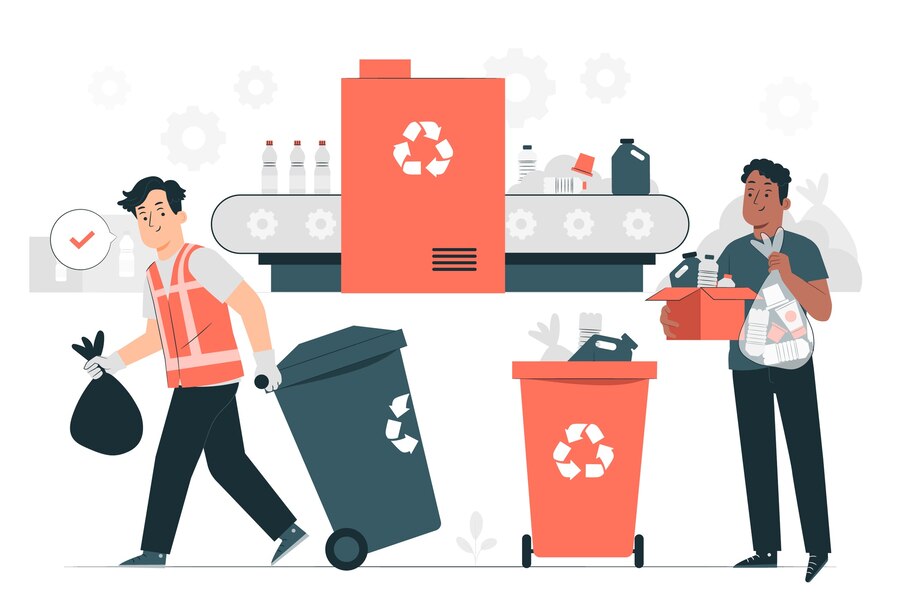Turning Waste into Wealth: How SMEs are Revolutionizing India’s Recycling Sector

India’s waste recycling sector is experiencing a quiet revolution, led not by giants but by nimble and innovative SMEs. Picture this: mountains of plastic, metal, and electronic waste, once a formidable environmental challenge, are being transformed into valuable resources, fueling a new wave of economic growth and environmental sustainability. This transformation, driven by SMEs, is not just a tale of business success but a compelling story of turning adversity into opportunity, of turning waste into wealth.
India generates about 26,000 tonnes of plastic waste daily, with only a minuscule 8% being recycled. The numbers for electronic waste are equally staggering, with the country producing over 16 lakh tonnes annually. Metal waste, too, contributes significantly to the total waste generated. The sheer scale of waste production highlights the urgent need for effective management and innovative recycling solutions.
SMEs across India are rising to this challenge. Baheti Recycling Industries stands out as a prime example, significantly impacting the aluminum recycling industry. Founded in 1994, Baheti swiftly rose to prominence, establishing itself as a leader in aluminum recycling and exemplifying India’s capacity for sustainable industrial practices. Similarly, Felix Industries is renowned for its cutting-edge solutions in wastewater treatment and recycling. The company has developed advanced Product Recovery Systems to maximize waste recovery efficiently. Additionally, Felix Industries provides customized treatment solutions for complex effluents, ensuring effective and economical waste management, thereby contributing significantly to the country’s environmental sustainability efforts.
In the realm of electronic waste, the efforts are equally impressive. Companies like Mumbai-based Ecoreco are spearheading the collection and recycling of e-waste, recovering valuable materials and ensuring hazardous components are safely managed. The environmental benefits of such initiatives are profound. Recycling reduces the volume of waste that ends up in landfills, curbs pollution, and conserves natural resources. For instance, recycling aluminum saves up to 95% of the energy required to produce it from raw ore.
Push to Green Economy
The impact of these SMEs extends beyond environmental benefits. Economically, the recycling sector creates jobs and supports sustainable business practices. It fosters a green economy where materials are continuously reused, promoting both economic growth and environmental sustainability. Industry associations such as the Recycling and Environment Industry Association of India (REIAI) and the Indian Plastics Institute (IPI) play a crucial role in this ecosystem. They advocate for supportive policies, facilitate knowledge exchange, and help standardize practices across the industry.
The journey from waste to wealth in India’s recycling sector is a testament to the power of innovation and the potential of sustainable development. SMEs, with their agility and creativity, are turning what was once considered waste into valuable resources, driving economic growth and championing environmental stewardship. This transformation is not just a success story of Indian enterprise but a blueprint for how nations can turn environmental challenges into opportunities for sustainable development. As these enterprises continue to innovate and expand, supported by industry associations and favorable policies, they pave the way for a cleaner, greener, and more prosperous India.
Need for a Supportive Ecosystem
Despite the promising advancements and contributions of SMEs in India’s waste recycling sector, several challenges persist. One significant hurdle is the lack of robust infrastructure for waste collection and segregation, which hampers efficient recycling processes. The informal sector, which handles a large portion of waste, often lacks the necessary facilities and safety measures, leading to inefficient recycling and health hazards for workers.
Besides this, the financial constraints faced by many SMEs limit their ability to invest in advanced recycling technologies and expand their operations. Regulatory hurdles and inconsistent enforcement of waste management policies further complicate efforts, as SMEs navigate complex compliance requirements and bureaucratic red tape.
Moreover, there is a pervasive lack of public awareness and participation in proper waste disposal and recycling practices, making it difficult to ensure a consistent supply of recyclable materials. Overcoming these challenges requires concerted efforts from the government, industry associations, and the public to create a supportive ecosystem for SMEs in the recycling sector.





